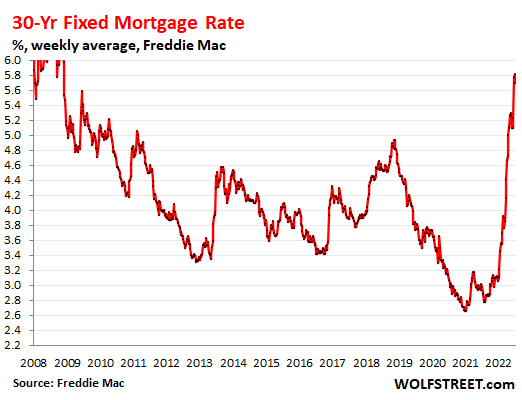Class-action lawsuits could trigger deep cuts in homebuying industry, analysis finds

New research from an investment bank claims the residential real estate industry could see a shakeup of epic proportions in the wake of multibillion-dollar, class action lawsuits targeting the industry’s commission structure.
Keefe Brunette & Woods estimates a broad “unbundling” of commissions could trigger a 30% drop in annual commissions for real estate agents, as well as a significant decline in the number of real estate agents doing business. All told, the Keefe Brunette & Woods analysis found fallout from the lawsuits — depending on how courts rule — could cut deeply into the commission pool estimated at about $100 billion annually.
The potential upheaval stems from several class-action lawsuits leveled against major real estate companies as well as the National Association of Realtors and its affiliated “multiple listing services” through which most homes are sold. Those cases include Sitzer/Burnett v. The National Association of Realtors, Moehrl v. The National Association of Realtors and Nosalek v. MLS Property Information Network.
The lawsuits contend NAR’s “participation rule” and “cooperative compensation” practices unfairly force home sellers to pay inflated commissions to buyer agents. Real estate giants RE/MAX Holdings Inc. and Anywhere Inc., which owns Coldwell Banker, recently agreed to settlements in the lawsuits — pending those agreements being finalized by a judge.
An NAR representative was unavailable for comment at the time of publication of this story.
In a statement to The Business Journals provided over the summer, the NAR said the practice of the listing broker paying the buyer-broker’s compensation saves sellers time and money by having so many buyer-brokers participating in the local marketplace, which creates a larger pool of potential buyers for sellers.
How the class-action lawsuits could affect the homebuying industry
A potential injunction targeting commissions in the cases could radically reshape the industry, according to Keefe Brunette & Woods.
“We expect litigation to reshape the residential brokerage industry’s commission structure and the broader housing market,” the report said, noting the lawsuit could potentially upend the longstanding practice of listing agents and sellers setting and paying buyer-agent commissions.”
The analysis stressed the biggest change could be the typical 5% to 6% commission rates most sellers pay when selling their homes.
If a court ruling or settlement resulted in lower commissions, Keefe Brunette & Woods projects it would also eventually translate to significantly fewer agents, since the number of agents has grown over recent decades even though home sales haven’t kept pace.
It’s not just the lawsuits that are threatening to disrupt the industry, as the report also highlights an executive order from the Biden administration to review what it called unfair “tying” practices in the residential brokerage industry, as well as ongoing litigation for the Department of Justice with the NAR.
In November 2020, the DOJ and NAR entered into a settlement that required the NAR to modify its rules to provide greater transparency to homebuyers and end certain practices, such as representing homebuying services as “free.”
But, on July 1, 2021, the DOJ filed a notice to withdraw from the settlement, stating the settlement did not adequately protect the DOJ’s rights to investigate the organization and “to permit a broader investigation of NAR’s rules and conduct to proceed without restriction.” The NAR took the DOJ to court and won its initial case. The DOJ has since appealed.
“For nearly a century, the U.S. residential brokerage industry has been the target of intense scrutiny, with critics arguing that the policies of the industry’s primary governing body, the NAR, restrict competition and inflate commissions. Each of the industry’s past legal contests has resulted in significant structural changes. We do not expect this latest chapter to be any different,” the Keefe Brunette & Woods report predicted.
According to Keefe Brunette & Woods, the most “impactful” scenario would occur if commissions become “unbundled” and home sellers and buyers would each separately negotiate a commission for their services. The report predicts such a change could lead to a reduction in commission rates, weaken industry trade organizations and spur the development of new technology around the housing market.
There already have been several notable changes in the industry since the suits were initially filed. In July, Bright MLS, which covers the Washington, D.C., metro area, said buyer-broker commissions are no longer mandatory. MLS Property Information Network Inc., a listing service in Massachusetts, also stated such commissions were optional.
More recently, the NAR said its commission rule was now “optional” in that it could offer “zero dollar” commissions for buyer agents.
As part of its settlement, Anywhere agreed not to require its company-owned brokerages, franchisees or affiliated agents to belong to the NAR, or follow the NAR Code of Ethics or its Multiple Listing Service Handbook. RE/MAX agreed to the same.
While Keefe Brunette & Woods’ analysis concluded disruption to the industry is likely in the wake of the lawsuits, it stressed that agent entrenchment could mean sellers might not seek out alternatives.
These are the nation’s hottest housing markets, based on our weighted formula looking at pricing momentum


